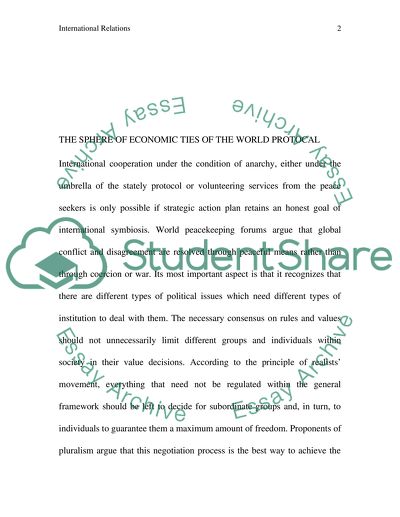Cite this document
(“Is cooperation possible under conditions of International Anarchy Essay”, n.d.)
Is cooperation possible under conditions of International Anarchy Essay. Retrieved from https://studentshare.org/miscellaneous/1533575-is-cooperation-possible-under-conditions-of-international-anarchy-discuss-in-light-of-realist-and-pluralist-approaches-to-international-relations
Is cooperation possible under conditions of International Anarchy Essay. Retrieved from https://studentshare.org/miscellaneous/1533575-is-cooperation-possible-under-conditions-of-international-anarchy-discuss-in-light-of-realist-and-pluralist-approaches-to-international-relations
(Is Cooperation Possible under Conditions of International Anarchy Essay)
Is Cooperation Possible under Conditions of International Anarchy Essay. https://studentshare.org/miscellaneous/1533575-is-cooperation-possible-under-conditions-of-international-anarchy-discuss-in-light-of-realist-and-pluralist-approaches-to-international-relations.
Is Cooperation Possible under Conditions of International Anarchy Essay. https://studentshare.org/miscellaneous/1533575-is-cooperation-possible-under-conditions-of-international-anarchy-discuss-in-light-of-realist-and-pluralist-approaches-to-international-relations.
“Is Cooperation Possible under Conditions of International Anarchy Essay”, n.d. https://studentshare.org/miscellaneous/1533575-is-cooperation-possible-under-conditions-of-international-anarchy-discuss-in-light-of-realist-and-pluralist-approaches-to-international-relations.


